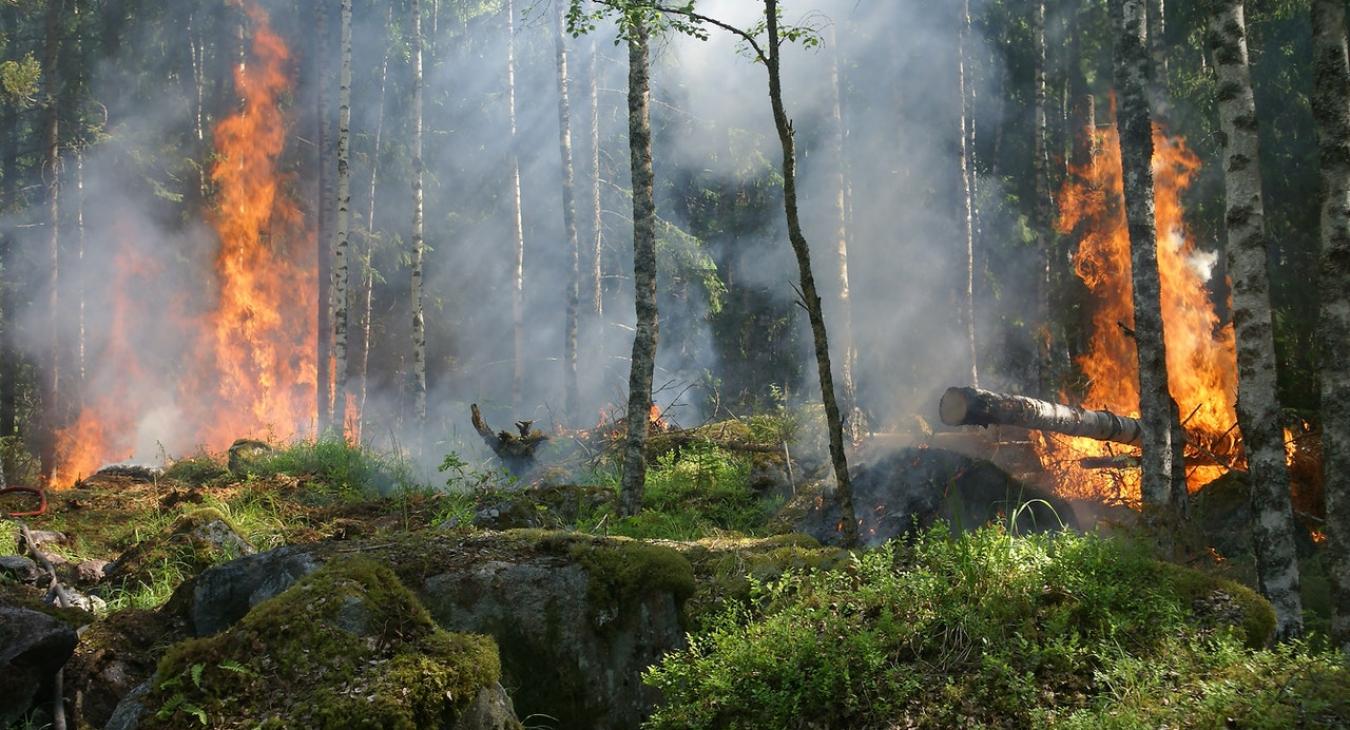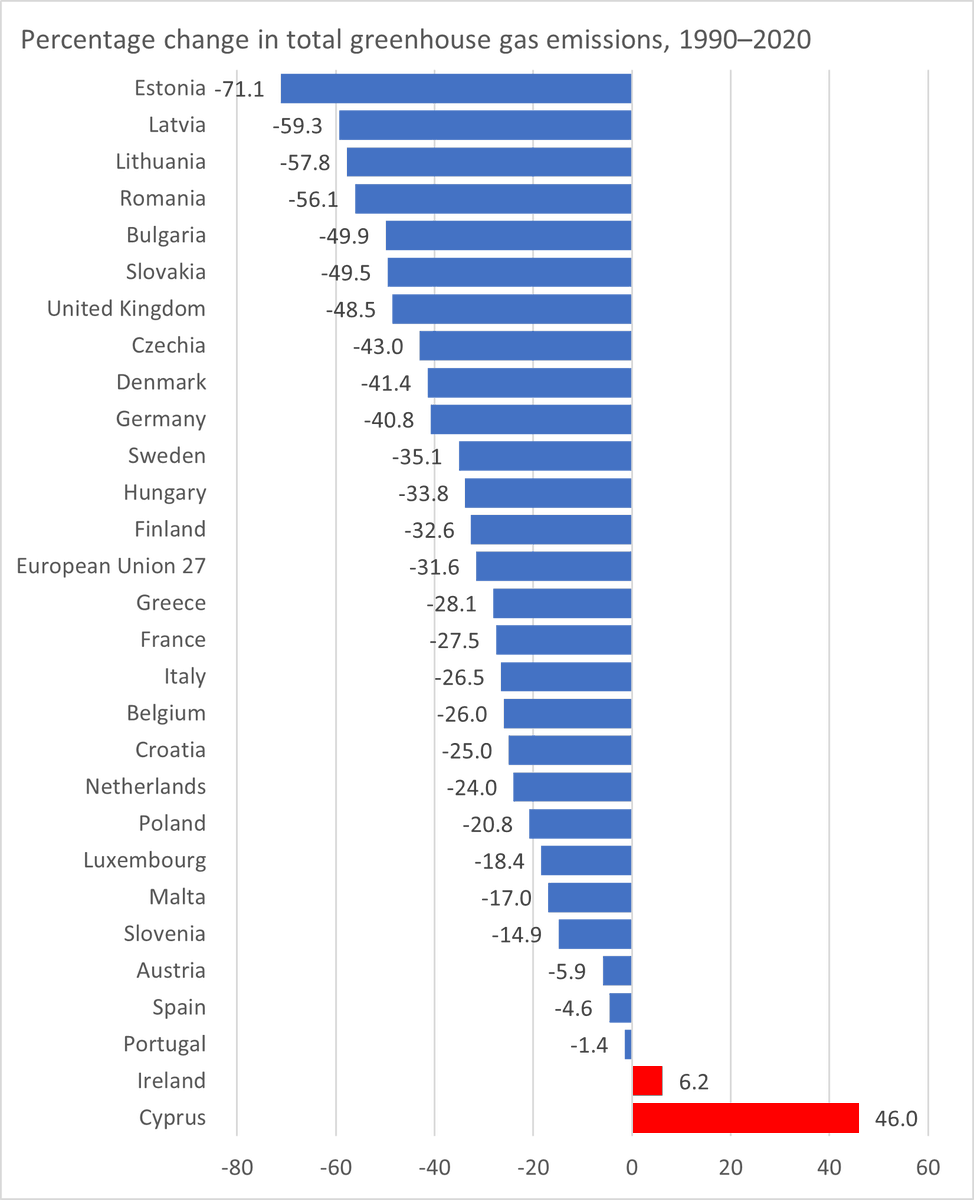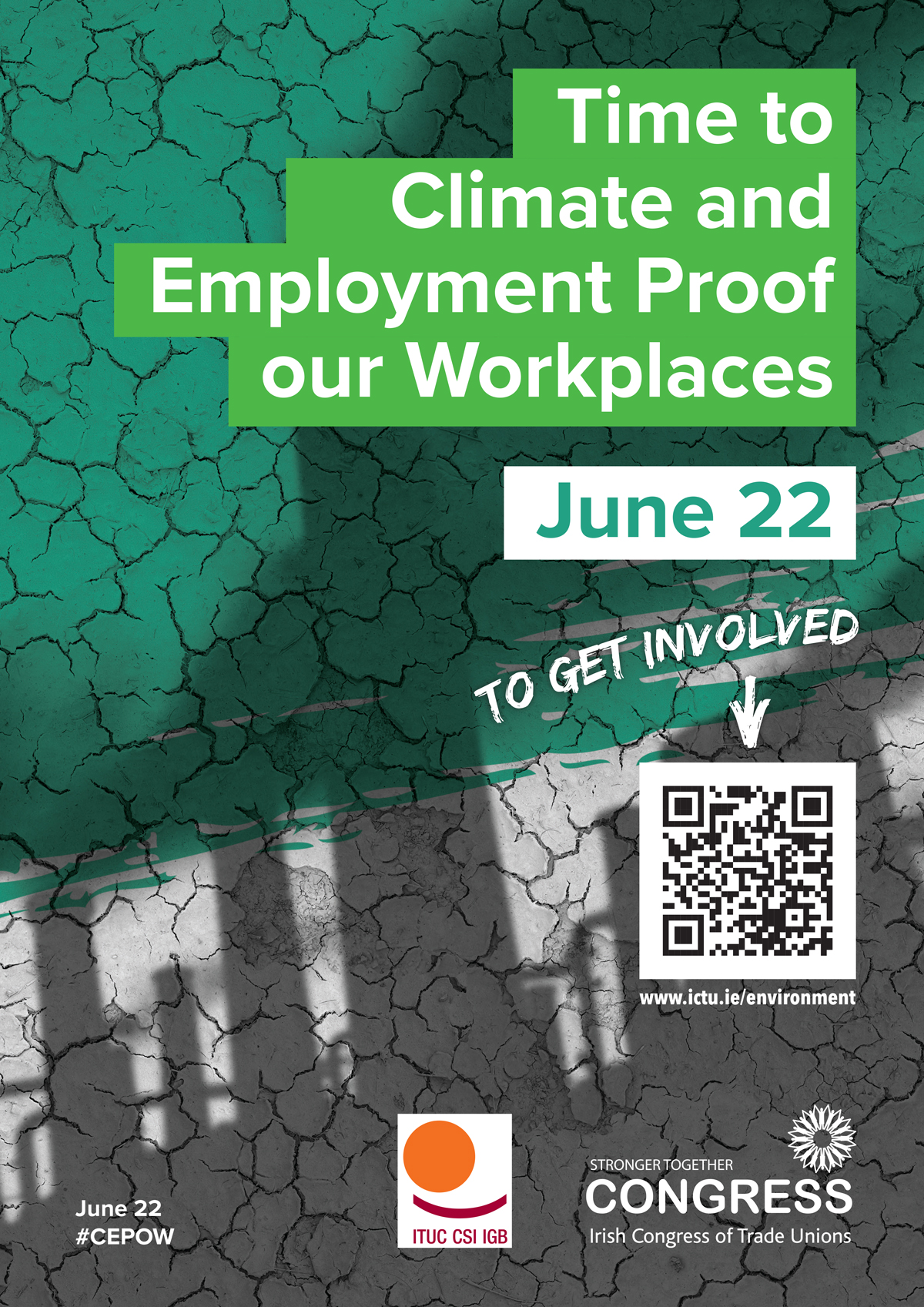
The world is burning. This is a climate emergency and we have to start acting like it.
Runways in the UK melting, 33 degrees in Phoenix Park, Dublin. This summer has been a scorcher and all the evidence points to such events occurring with greater frequency in the future.
Link to climate change?
World Meteorological Organisation Secretary-General Petteri Taalas has warned that he expects to see a "much higher" number of heatwaves in the future due to climate change. Climate change makes heat waves hotter and more frequent. This is the case for most land regions and has been confirmed by the U.N.'s global panel of climate scientists (IPCC).
Greenhouse gas emissions from human activities have heated the planet by about 1.2 Celsius since pre-industrial times. That warmer baseline means higher temperatures can be reached during extreme heat events.
Emissions rising here!
And yet, Emissions in Ireland are rising - Ireland’s greenhouse gas emissions increased by 4.7% in 2021 compared to 2020 and are now 1.1% above 2019 pre-COVID restriction levels.
The Carbon Budgets for 2030 and 2050 have already been approved by government.
Before the end of the month, the Government is due to make decisions on how much each sector of the economy and society has to cut its climate-polluting emissions by 2030. That’s industry, transport, buildings, electricity, and agriculture which is attracting a lot of public attention at the moment. . The reality is however that wherever the figures land the combined sectoral ceilings can’t add up to more than 100% of the national carbon budget - commitment in law to reduce national emissions by 51% by 2030 
Just Transition
Climate change and the response to it affect every aspect of the world of work. From heat exposure where workers die on the job to a clean energy transition that can bring good quality new jobs. Change is here. For workers in every sector and in every country. Scientists tell us the time to act on climate change is now.
That is why Congress has been stressing that Just transition policies and measures, focused on the creation of decent work and quality jobs in all sectors and in all countries, are a crucial part of effective climate action.
Based on the ILO Guidelines, we have proposed the following succinct description of what it takes to deliver these objectives for workers and communities:
"A just transition secures the future and livelihoods of workers and their communities in the transition to a low-carbon economy. It is based on social dialogue between workers and their unions, employers and governments. A plan for just transition provides and guarantees better and decent jobs, social protection, more training opportunities and greater job security for all workers affected by global warming and climate change policies".
If we are to ensure that the depth and pace of transition are sufficient to deliver the change we need to save the planet in the time, then we need a very different architecture and a very different set of rules that connect the world of climate action intimately with the world of work. That is why Congress, along with a number of other organisations in the Just Transition Alliance has written to Minister Eamon Ryan Just Transition Open Letter | ICTU stating that an essential component of such an approach would be the immediate establishment of a National Just Transition Commission. We do not believe that job losses and lower living standards– alas much of the experience in the midlands - are the automatic outcome of the zero-carbon transition, but rather result from bad planning and poor policy. The fastest, fairest and the most effective transition is one that is inclusive, protects workers and communities, and delivers new opportunities for all. We will be making this point again at this week's 2nd Climate Stakeholder Forum.
However, the advice is don’t hang around waiting for the architecture to be fixed but rather seek to get stuck into climate proofing your workplace or run the risk of having it imposed upon you!

David Joyce
